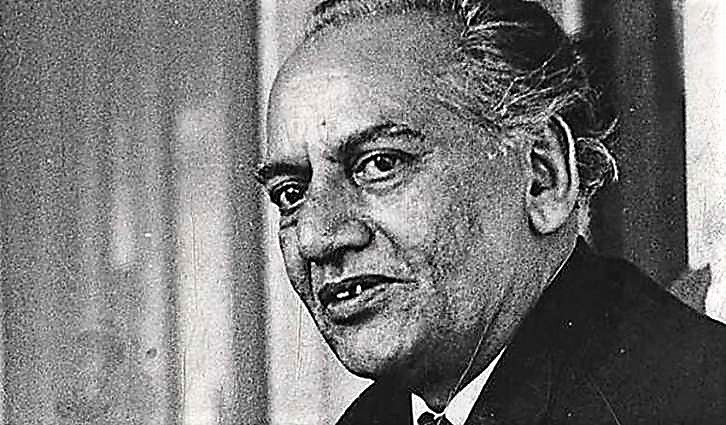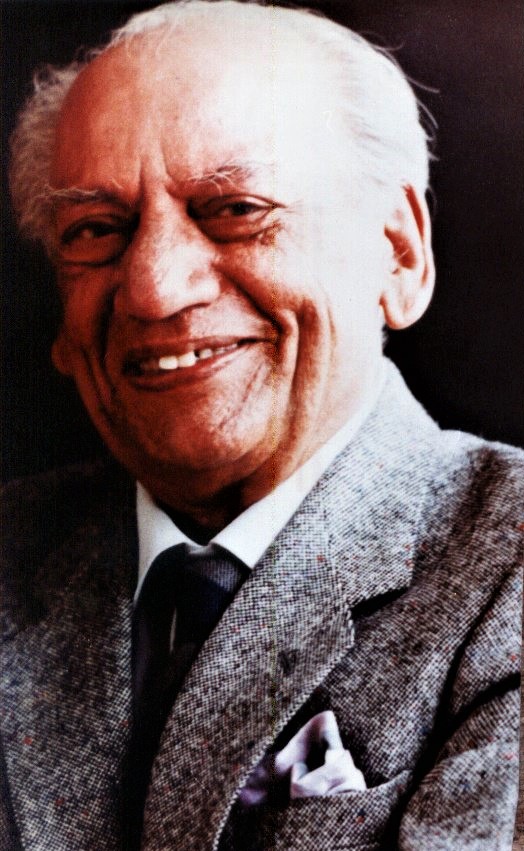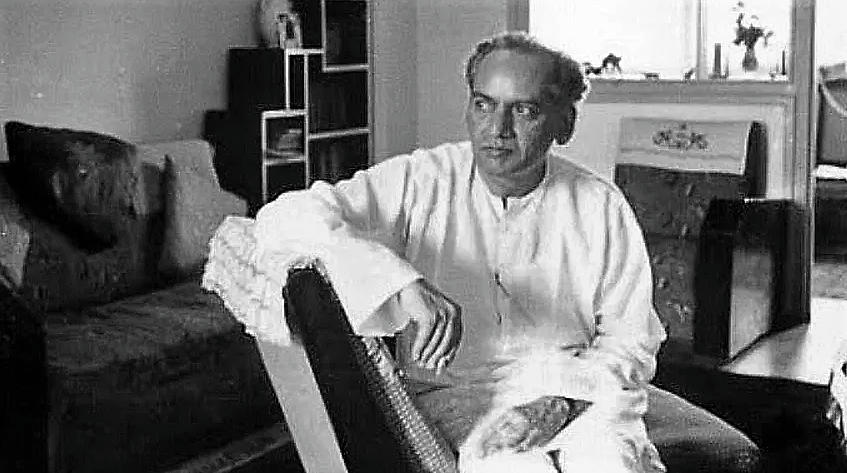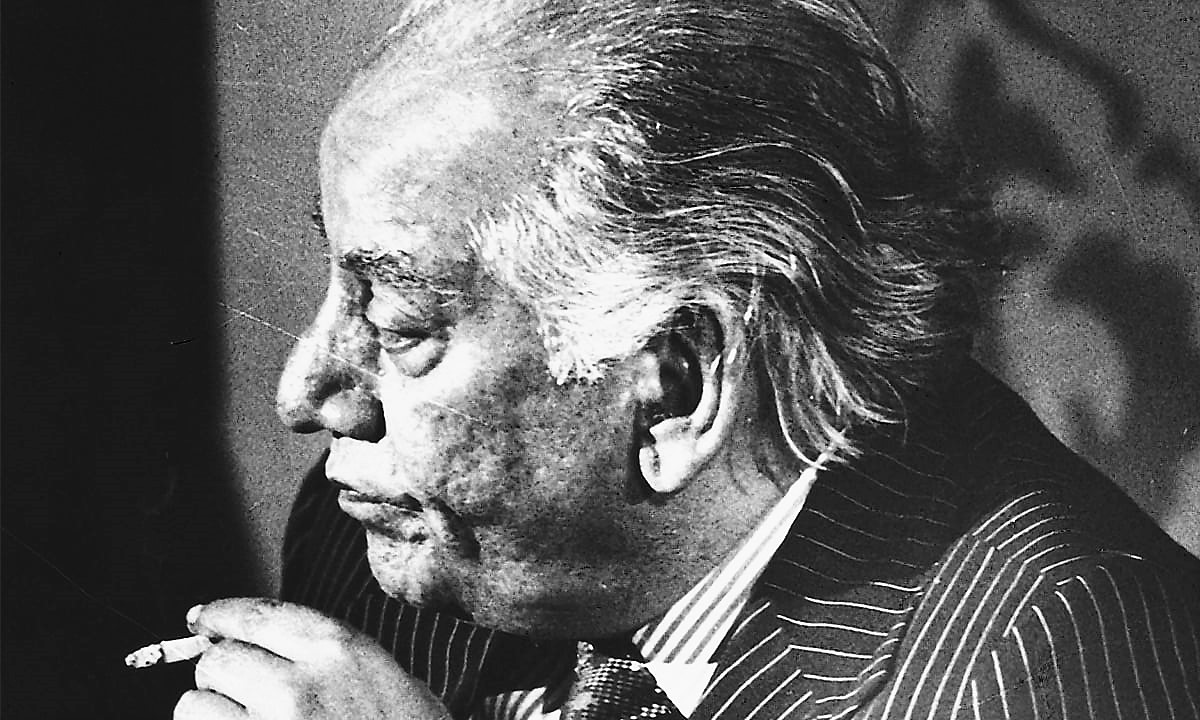Introduction to Faiz Ahmad Faiz:
Faiz Ahmad Faiz was born on 13th February 1911 in Sialkot, India, which became a part of Pakistan currently. He was a teacher, an army officer, a journalist, a trade unionist, a writer, and a broadcaster. He was the son of landlord Sultan Fatima and Sultan Muhammad Khan. Although Faiz Ahmed Faiz was not a bad-to-the-bone or extreme left socialist, he burned through much of the 1950s and 1960s advancing the reason for socialism in Pakistan. When Faiz Ahmed Faiz was manager of the Pakistan Times, one of the major papers of the 1950s, he loaned publication backing to the gathering [1].
| Basic Information | Faiz Ahmad Faiz |
| Nationality | Pakistani, British India |
| Date of Birth | 13th February 1911 |
| Place of Birth | Kala Qader, Narowal District, Punjab, British India (currently in Faiz Qader, Punjab, Pakistan) |
| Date of Death | 20th November 1984 |
| Place of Death | Lahore, Punjab, Pakistan |
| Age | 73 years old |
| Status | Writer |
| Occupation | Writer, Poet, journalist, Pak-Army officer |
| School / College | Local Masjid by Maulana Hafiz Muhammad Ibrahim Mir Sialkoti |
| Graduation | Murray College at Sialkot, Government College University, Punjab University, Lahore |
| Spouse | Alys Faiz |
| Active in Career | 1935 – 1984 |
| Works have done | Subh-e-Azadi Naqsh-e-Faryadi Dast-e-Sabah Zindan-Nama |
| Awards | Nigar Awards (1953) Lenin Peace Prize (1962), HRC Peace Prize, Nishan-e-Imtiaz (1990), Avicenna Prize (2006) |
Faiz Ahmad Faiz Join the Soviet Union:
Faiz Ahmad Faiz had attaches with the Soviet Union for quite a while, a relationship with a skeptic country that later respected him with a top prize. Also, after his demise, he had regarded by the Russian government by naming him “our writer” to many Russians. Despite their scholarly ability, Faiz and others favorable to socialists had the minimal political situations in the district [1].
Editorial Manager of the Pakistan Times:
Faiz Ahmad Faiz had faith in Internationalism and underscored the way of thinking on Global town. In 1947, he became editorial manager of the Pakistan Times and in 1948, Faiz became VP of the Pakistan Trade Union Federation (PTUF) [1].
Joining of Pastor Liaqat Ali Khan:
In 1950, Faiz Ahmad Faiz joined the appointment of Prime pastor Liaquat Ali Khan, at first driving a business designation in the United States, going to the gathering at the International Labor Organization (ILO) at San Francisco. During 1948–50, Faiz drove the PTUF’s assignment in Geneva and turned into a functioning individual from World Peace Council (WPC) [1].

In-Touching With the Military:
He had additionally associated with offering help for military faculty in the circle (e.g., Major General Akbar Khan). His association with the gathering and the upset arrangement of Major General Akbar Khan prompted his later detainment [1].
Plan and Outcast at Rawalpindi:
The administration’s inability to catch Indian-regulated Kashmir by the Liaquat Ali Khan had disappointed Pakistan Armed Forces military pioneers in 1948, including Jinnah. An essayist had asserted that Jinnah had huge reservations concerning the capacity of Ali Khan to ensure Pakistan’s autonomy and power. After getting back from the USA, Ali Khan set cutoff points on both the Communist coalition and the Socialist Party of Pakistan. Although the Communist Party of East Pakistan had extreme accomplishment in East Pakistan after he perceived the mass dissent of Bengali as a public language [1].
Communist Party:

The Muslim League had neglected to flourish in West pakistan since Jinnah set it up. PM Liaquat Ali Khan at that point set extreme limitations and put tremendous focus on the Communist Party to guarantee that it couldn’t act transparently as a political gathering. Left-wing military official and Major-General Akbar Khan Chief of General Staff had figured the plot. A covert gathering was led at the home of General Akbar on 23 February 1951, went to by many Communist officials and heads of the Communist Group, including Marxist Sajjad Zaheer and the Communist Faiz Ahmad Faiz [1].
General Akbar guaranteed Faiz Ahmed Faiz and Zaheer that the Communist Party will be allowed to act like each other gathering as a legitimate leftist faction and to take part in the elections But, as showed by socialist Zafar Poshni, who kept up in 2011 that “no understanding had reached, the arrangement objected socialists were reluctant to acknowledge the expressions of General and the members were scattered without meeting once more [1].“
The plot had thwarted, however, the following morning when one of the socialist officials deserted to the ISI, uncovering the thought processes behind the plot. At the point when the news hit the Prime Minister, the Prime Minister gave guidelines for significant captures to the military police. They detained general Akbar with different revolutionaries, including Faiz Ahmad Faiz, before the overthrow could be dispatched [1].
The Council Headed by Faiz Ahmad Faiz:
In a council headed by branch officials of the Judge Advocate General in a military court, Faiz Ahmed Faiz had accounted for to have gone through four years in Montgomery Central Jail (MCJ), because of his ground-breaking presence, the legislature of Liaquat Ali Khan continued to put him in Karachi Central Prison and Mianwali Central Jail. The communist Huseyn Suhravardie turned into his indictment counselor. Finally, on 2 April 1955, Prime Minister Huseyn Suhrawardy drove Faiz’s detainment, and not long after he withdrew for London, Great Britain.Faiz returned in 1958, however, had again captured by President Iskander Mirza, purportedly denouncing Faiz Ahmed Faiz for detailing favorable to socialist recommendations and supporting a favorable to Moscow strategy [1].
All things considered, Faiz’s term had driven in 1960 because of the effect of Zulfikar Ali Bhutto on Ayub Khan, and he left for Moscow, the Union of Soviet Socialist Republics; he in the long run got comfortable in London, United Kingdom [1].
Associations and social appreciation:
Lenin Peace Prize:
He became the first person who got the Asian poet prize which named as the Lenin Peace Prize; the Soviet Union awarded the award in 1964. After in 1976, he got another award which was called as the Lotus Prize for the literature. Before death, he had nominated for the Lenin Prize and he also got the civilian highest award by the government of Pakistan, Nishan-e-Haider [1].
Famous Urdu Nzam of Faiz Ahmad Faiz:
Murmur Dekhenge (Urdu: ہم دیکھیں گے) is a well-known Urdu Nzam, composed of Faiz Ahmed Faiz in 1979 and first distributed in 1981.Originally composed of Va Yabqá Vajhu Rabbika (The substance of your ruler). It had remembered for the seventh verse book of Faiz Ahmed Faiz — Mere Dil Mere Musafir. Iqbal Bano sang the sonnet, purposely wearing a sari (considered by some as an Indian and un-Islamic dress for Pakistani ladies), notwithstanding the prohibition on the public recitation of Faiz Ahmed Faiz’s sonnets around then [1].

The poetry of Faiz Ahmed Faiz:
ہم دیکینگے
لزم ہے کے ہم بھی دیکینگے
وو دین کے جس کا وڈا ہے
جو لاحضول میں لکھا ہے
جبہ زلم او سیٹم کے کوہ گرن
روئی کی ترہ آپ جانگے
ہم مہکومون کی پاؤن کہانی
تم دھرتی دھر دھرکے گی
اور اھل حکم حکم سر اووپر
جب بجلی کر کر کارگی
جب آرزِ خدا کے کعبے سے
سب لیکن اوتھوے جاینگے
ہم اھل صفا مردوd اذیت
مسناد پہ بیتے جاینگ
سب توج اچھے جاینگے
سبقت گیرے جینجے
باس نام رہ گی اللہ کا
جو غیبت بھی ہے ہزیر بھی
جو منظر بھی ہے نذیر بھی
اتھیگا عن الحق کا نارا
جو مائی بھی ہو تم بھی ہو
اور راج کاریگی خالق خودہ
جو مئی بھی ہن اور تم بھی ہو
ہم دیکینگے ، لزم ہے کے ہم بھی دیکینگے

Translation [1]:
We shall Witness
We too shall witness
the day that has been promised,
of which has been written on the slate of eternity
When the enormous mountains of tyranny
blow away like cotton.
Under our feet- the feet of the oppressed-
when the earth will pulsate deafeningly
and on the heads of our rulers
when lightning will strike.
From the abode of God
When icons of falsehood will be taken out,
When we- the faithful- who have been barred out of sacred places
will be seated on high cushions
When the crowns will be tossed,
When the thrones will be brought down.
Only The name will survive
Who cannot be seen but is also present?
Who is the spectacle and the beholder, both?
I am the Truth- the cry will rise,
Which am I, as well as you
And then God’s creation will rule
Which am I, as well as you
We shall Witness
We too shall witness
Death of Faiz Ahmed Faiz:
Faiz Ahmed Faiz died in Lahore, Punjab Province of Pakistan, after he came back to Pakistan. His learning was such that he had recommended by the Nobel Prize in the literature. He died on 20th November 1984. At the death time, his age was about 73 years old [1].

References:
- wikipedia 10th October 2020; Available from:https://en.wikipedia.org/wiki/Faiz_Ahmad_Faiz
2 Replies to “Faiz Ahmad Faiz – Profile & Biography | Our National Hero”